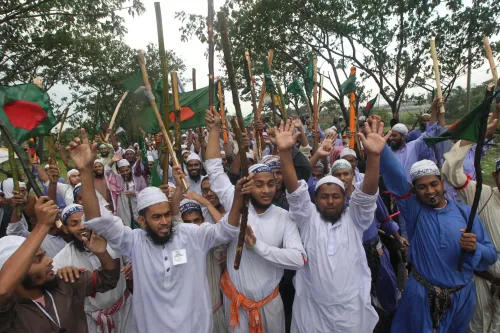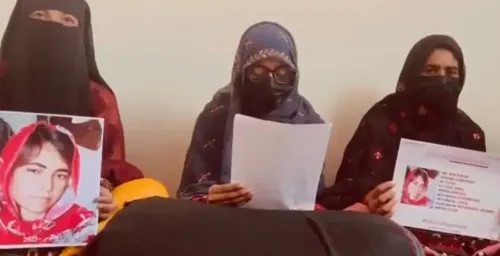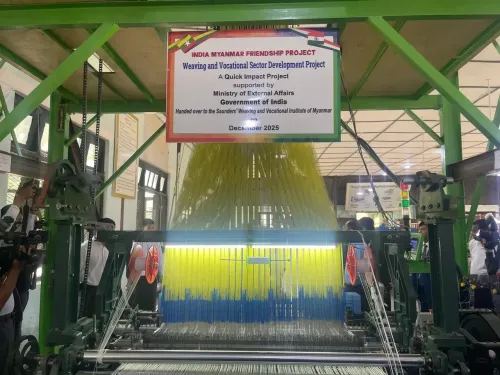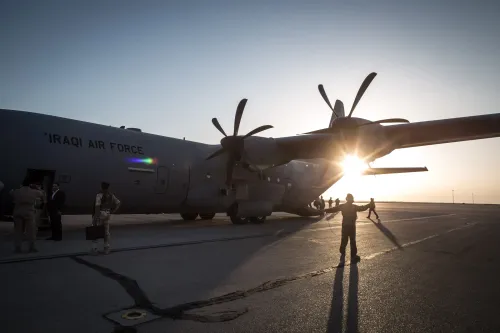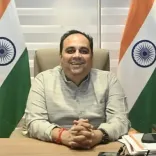How Does the Op Sindoor Outreach in Japan Showcase India's Firm Stance Against Terrorism?
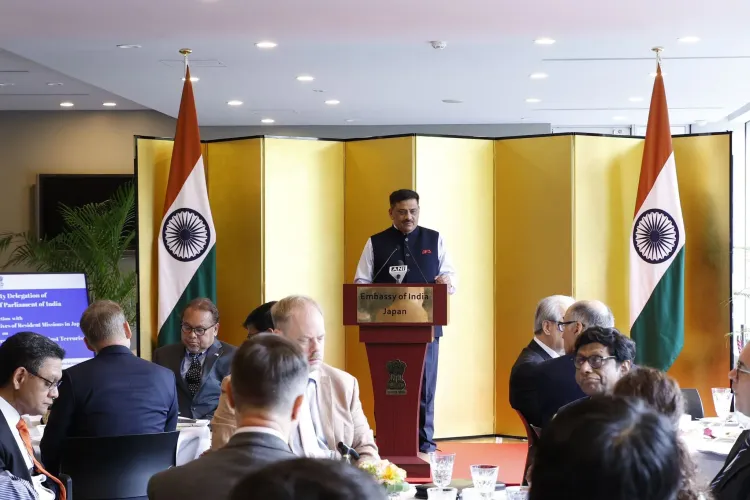
Synopsis
Key Takeaways
- India's unwavering commitment to combat terrorism highlighted.
- Engagement with Japan strengthens bilateral relations.
- Focus on exposing Pakistan's role in terrorism.
- Support from Japanese leaders underlines international solidarity.
- Discussions on regional security emphasize shared democratic values.
Tokyo, May 23 (NationPress) The Indian all-party parliamentary delegation, headed by Janata Dal (United) MP Sanjay Kumar Jha, engaged actively with the Diplomatic Corps at the Indian Embassy in Tokyo, reinforcing India's firm commitment to fighting terrorism as part of the global outreach initiative known as Operation Sindoor.
According to a post from the Embassy of India in Japan on X, “Proactive engagement by the All-Party Delegation from India with the Diplomatic Corps in Tokyo at the Embassy of India in Japan reaffirms India’s unwavering national resolve against terrorism. United in voice, firm in action.”
The delegation includes BJP MPs Aparajita Sarangi and Brij Lal, Trinamool Congress MP Abhishek Banerjee, CPI(M) Rajya Sabha member John Barittas, and senior Congress leader Salman Khurshid.
This visit marks the start of India's unprecedented diplomatic efforts to highlight Pakistan's ongoing involvement in cross-border terrorism, especially after the Pahalgam attack that occurred on April 22.
On Thursday, the Indian delegation participated in the Inaugural Session of Raisina Tokyo 2025, joining leaders and experts from India, Japan, and the entire Indo-Pacific region. At this session, speakers emphasized Japan's backing of India's battle against terrorism.
Additionally, the delegation held critical discussions with Takashi Endo, the Chairman of the Japanese House of Representatives Committee on National Security, where they communicated India's unified and determined position against terrorism in all its forms. Endo conveyed Japan's strong solidarity with India in this fight, according to reports from the Indian Embassy.
They also met with Japanese Foreign Minister Takeshi Iwaya, who reiterated Tokyo's support and commended India's restraint amid provocation.
Iwaya stressed the importance of bringing terror perpetrators to justice and expressed robust support for India's response to the Pahalgam attack.
Sanjay Jha posted on X, “Reiterated our national resolve to act firmly against terror and those who support it. Grateful for Japan's support and for calling for justice against perpetrators of such acts.”
He honored the Japanese minister in traditional Mithila style.
The delegation later met with former Japanese Prime Minister Yoshihide Suga, currently the Vice President of the ruling LDP and Chairman of the Japan-India Association, who reaffirmed Japan's commitment to aiding India in its battle against terrorism.
Furthermore, the delegation interacted with distinguished Japanese think tanks, providing insights into India's zero-tolerance policy and presenting detailed accounts of Pakistan's sponsorship of terrorist organizations such as Lashkar-e-Taiba (LeT) and Jaish-e-Mohammad (JeM).
This session saw strong affirmations of support for India's position on regional security and the fight against state-sponsored terrorism.
Sanjay Jha commented on X, “This dialogue strengthens global partnerships rooted in peace, security, and shared democratic values.”
Upon their arrival in Tokyo on Thursday, the Indian lawmakers were welcomed by Ambassador Sibi George and were briefed on the roadmap for strategic engagements with Japan's political, diplomatic, and civil society stakeholders.


